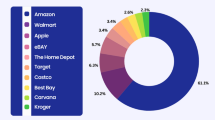Abstract
The growth in mobile applications (apps) is rapid and immense. What was once a technology to satisfy the basic needs of a mobile user has now become a huge source of entertainment, education, games, etc. App development is iterative and incremental; therefore, they are released in improved versions to achieve higher app success in both functional and non-functional aspects. In this generic setting, the increasing prevalence of user reviews and generated ratings offers a wealth of insights, especially for post-development analysis. However, user reviews can be highly variable and inconsistent, as the informal nature of the language allows for misinterpretation, leading to a daunting task. In this paper, an empirical analysis is conducted to assert the effectiveness of NLP techniques in modeling the semantic contexts of user reviews in embedding vectors for predicting mobile app ratings. Here, each contextual macro-category is preprocessed with SMOTE to handle skewed distribution and then subjected to 4 feature selection techniques, e.g. PCA, ANOVA, etc. In the last step, 13 different prediction models (classifiers) are fitted to predict the mobile app rating. The study confirms significantly improved predictive performance in Glove-T and GloVe-W equipped word embedding models. Among prediction models, logistic regression (LOGR) outperforms the equivalent with an overall predictive ability of a greater extent, with an average accuracy score of 67, an average AUC of 0.70, and an F-measure of 0.72, indicative of its high functioning with numerical data and word vectors.
Access this chapter
Tax calculation will be finalised at checkout
Purchases are for personal use only
Similar content being viewed by others
References
Abulhaija, S., Hattab, S., Abdeen, A., Etaiwi, W.: Mobile applications rating performance: a survey. Int. J. Interact. Mob. Technol. 16(19) (2022)
Fan, G., Zhang, C., Chen, J., Li, P., Li, Y., Leung, V.C.: Improving rating prediction in multi-criteria recommender systems via a collective factor model. IEEE Trans. Netw. Sci. Eng. (2023)
Hossain, M.S., Uddin, M.K., Hossain, M.K., Rahman, M.F.: User sentiment analysis and review rating prediction for the blended learning platform app. In: Applying Data Science and Learning Analytics Throughout a Learner’s Lifespan, pp. 113–132 (2022)
Kayalvily, T., Denis, A., Mohd Norshahriel, A.R., Sarasvathi, N.: Data analysis and rating prediction on google play store using data-mining techniques. J. Data Sci. 2022(01) (2022)
Li, X., Zhang, Z., Stefanidis, K.: Mobile app evolution analysis based on user reviews. In: New Trends in Intelligent Software Methodologies, Tools and Techniques, pp. 773–786. IOS Press (2018)
Navaei, M.: A performance analysis on machine learning algorithms to predict mobile application’s star rating by its user interface features. East Carolina University (2022)
Nayebi, M., Adams, B., Ruhe, G.: Release practices for mobile apps–what do users and developers think? In: 2016 IEEE 23rd International Conference on Software Analysis, Evolution, and Reengineering (SANER), vol. 1, pp. 552–562. IEEE (2016)
Qiao, Z., Wang, G.A., Zhou, M., Fan, W.: The impact of customer reviews on product innovation: empirical evidence in mobile apps. Anal. Data Sci.: Adv. Res. Pedag. 95–110 (2018)
Vasa, R., Hoon, L., Mouzakis, K., Noguchi, A.: A preliminary analysis of mobile app user reviews. In: Proceedings of the 24th Australian Computer-Human Interaction Conference, pp. 241–244 (2012)
Author information
Authors and Affiliations
Corresponding author
Editor information
Editors and Affiliations
Rights and permissions
Copyright information
© 2024 The Author(s), under exclusive license to Springer Nature Switzerland AG
About this paper
Cite this paper
Mishra, P., Singh, V., Krishna, A., Kumar, L. (2024). An Empirical Analysis on Leveraging User Reviews with NLP-Enhanced Word Embeddings for App Rating Prediction. In: Barolli, L. (eds) Advanced Information Networking and Applications. AINA 2024. Lecture Notes on Data Engineering and Communications Technologies, vol 201. Springer, Cham. https://doi.org/10.1007/978-3-031-57870-0_21
Download citation
DOI: https://doi.org/10.1007/978-3-031-57870-0_21
Published:
Publisher Name: Springer, Cham
Print ISBN: 978-3-031-57869-4
Online ISBN: 978-3-031-57870-0
eBook Packages: Intelligent Technologies and RoboticsIntelligent Technologies and Robotics (R0)




